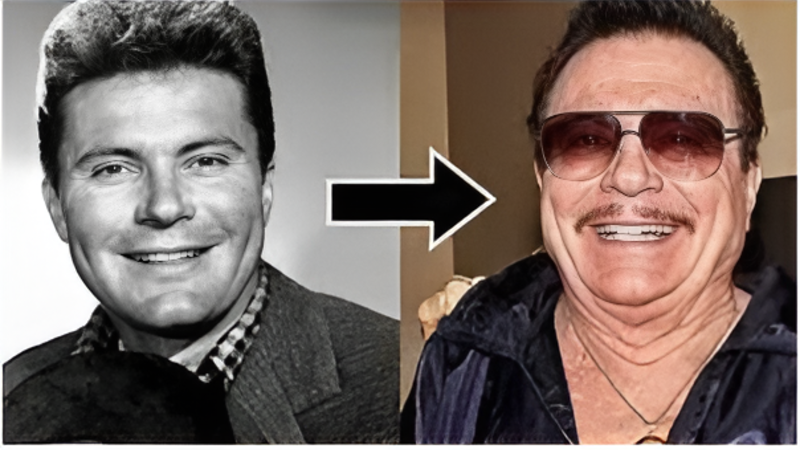Introduction to Max Baer
Max Baer once stood as a towering presence in the boxing world. Though the title suggests “at age 103,” in reality, his life ended long before then. He was born on February 11, 1909, and became famous as a heavyweight champion before later branching into entertainment. This article honors his career, personality, and lasting reputation while also updating what is known or believed as of 2025.
Early Life and Boxing Career
Rising to Fame
Maximilian Adelbert Baer entered the world in Omaha, Nebraska, and later relocated to California, where he found his way into boxing. His natural athleticism showed early, and he built a reputation in amateur circuits before turning professional in 1929. From that point onward, Baer’s bold style, strength, and flair earned attention among fans and critics alike.
World Heavyweight Champion
Baer’s greatest triumph in the ring came in 1934, when he knocked out Primo Carnera in the 11th round to claim the World Heavyweight title. His aggressive punching style and showmanship made the bout memorable. Though his reign was relatively short, he lost the title to James J. Braddock in 1935, his impact on the sport was substantial. Two of his fights (one against Max Schmeling, another against Braddock) were later honored as Fight of the Year by The Ring magazine.
Baer’s final officially recorded ring record was 72 wins (52 by knockout) and 12 losses before he retired in 1941.
One dark moment of his career involved the 1930 fight with Frankie Campbell, who tragically died of injuries sustained during that contest. Baer faced a manslaughter indictment but was ultimately cleared. The incident reportedly haunted him afterward.
Life Beyond Boxing
Transition to Entertainment
Once his active boxing days ended, Baer turned toward acting and public-facing roles. He appeared in films and television programs, often typecast as the strongman or fighter persona. Among his notable screen appearances was The Harder They Fall (1956), in which he played a boxer loosely modeled on Carnera. He also took occasional jobs as a boxing referee and made guest appearances on television shows.
Personal Life and Family
Baer’s marital life included two marriages: first to Dorothy Dunbar (1931–1933), then to Mary Ellen Sullivan from 1935 until his death. The second marriage produced three children, including Max Baer Jr.
Max Baer Jr. went on to win fame playing Jethro Bodine in The Beverly Hillbillies. As of 2025, he is 87 years old and remains the only surviving main cast member of that show.
Max Baer’s Legacy
Contributions to Boxing
Baer’s legacy in boxing is not just in his title win, but in how he elevated the spectacle. His energetic presence, flair for the dramatic, and engagement with media drew wider audiences to the sport in the 1930s. Over time, those characteristics influenced how boxers marketed themselves beyond just fighting.
He was inducted into the International Boxing Hall of Fame in 1995, cementing his place in boxing history.
Humanitarian Efforts
Baer was a long-time member of the Fraternal Order of Eagles, and after his passing the organization established a heart research fund in his memory to support cardiovascular studies.
Parks in Livermore and Sacramento were named in his honor, recognizing his local impact.
Celebrating a Century and More
Reaching Age 103
While the title posits Baer living to 103, the reality is that he passed away much earlier. Nevertheless, the thematic concept of “age 103” invites reflection on what his life might have spanned had he lived into the 21st century. Imagining that provides an opportunity to connect past and present, to consider how boxing, entertainment, and celebrity would have changed around him.
Reflections on a Legendary Life
Putting aside the literal age claim, Max Baer’s life still offers lessons: ambition, reinvention, showmanship, and perseverance. Though his years were few, the impression he left continues to ripple through boxing lore and television memory alike.
Conclusion
Max Baer’s trajectory—from a Nebraska-born athlete to heavyweight champion and Hollywood presence—remains compelling. Though he never actually turned 103, his mythic status has allowed generations to envision a long, storied life filled with more chapters than he lived.
Continuing the Legacy
As of 2025, Max Baer Jr. carries forward his father’s name in the public eye, especially through the memory of The Beverly Hillbillies. The elder Baer’s influence persists in boxing retrospectives, biographies, documentaries, and clubs dedicated to preserving fight history.
Keeping the Memory Alive
Historians, fans, and storytellers perpetuate Baer’s memory through written works, video features, and archival projects. In 2025, renewed interest in the “golden age” of boxing has led to more digital exhibits and online retrospectives highlighting figures like Baer, making his story accessible for new audiences.
